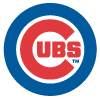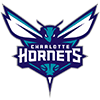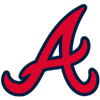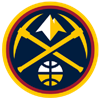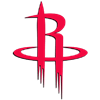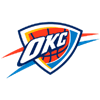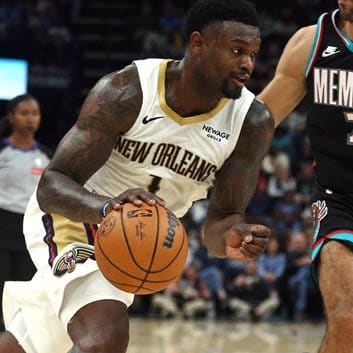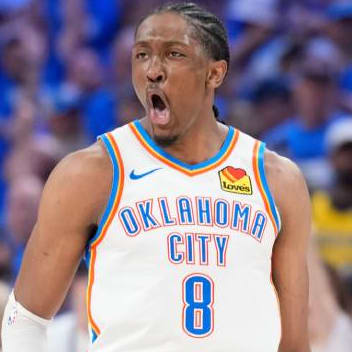It seems so long ago, but there was a point in time when Celtics point guard Phil Pressey was a projected first-round pick. That was after his sophomore year, when he was the main ball-handler and distributor on a Missouri team that got a No. 2 seed in the NCAA Tournament and finished 30-5 on the season.
Aside from Pressey, no one from that Mizzou team is in the NBA in 2014. Kim English spent last season, his rookie year, in Detroit and has since left for overseas basketball. The San Antonio Spurs, meanwhile, still own Marcus Demon's rights, but Denmon is yet to play an NBA game outside of the Las Vegas Summer League. Ricardo Ratliffe never saw a second on an NBA roster. Neither did Laurence Bowers, though Bowers did play on the Memphis Grizzlies' summer league team this past July.
For now, Pressey is the only player from that exciting, four-guard-starting-lineup team that is in the NBA. And maybe we shouldn't be so incredibly shocked about that.
In some ways, there should be some element of surprise. But after seeing Pressey play for three years at Missouri, his rookie season is starting to make more and more sense.
Pressey was in the first-round conversation after his sophomore season. If he had left Mizzou then, maybe he would've gone somewhere in the 25-to-30 range in the 2012 NBA draft. Maybe he would've gone somewhere in the early second round. Either way, he would've been drafted. But Pressey stayed
It seems so long ago, but there was a point in time when Celtics point guard Phil Pressey was a projected first-round pick. That was after his sophomore year, when he was the main ball-handler and distributor on a Missouri team that got a No. 2 seed in the NCAA Tournament and finished 30-5 on the season.
Aside from Pressey, no one from that Mizzou team is in the NBA in 2014. Kim English spent last season, his rookie year, in Detroit and has since left for overseas basketball. The San Antonio Spurs, meanwhile, still own Marcus Demon's rights, but Denmon is yet to play an NBA game outside of the Las Vegas Summer League. Ricardo Ratliffe never saw a second on an NBA roster. Neither did Laurence Bowers, though Bowers did play on the Memphis Grizzlies' summer league team this past July.
For now, Pressey is the only player from that exciting, four-guard-starting-lineup team that is in the NBA. And maybe we shouldn't be so incredibly shocked about that.
In some ways, there should be some element of surprise. But after seeing Pressey play for three years at Missouri, his rookie season is starting to make more and more sense.
Pressey was in the first-round conversation after his sophomore season. If he had left Mizzou then, maybe he would've gone somewhere in the 25-to-30 range in the 2012 NBA draft. Maybe he would've gone somewhere in the early second round. Either way, he would've been drafted. But Pressey stayed for his junior season, and everything seemed to go downhill.
The drive-and-kicks inside the Frank Haith offense didn't work as well without shooters like Denmon and English to kick out to on the perimeter. The pick-and-roll, though still effective with Alex Oriakhi, was missing Ricardo Ratliffe, who had proven to be one of the best roll men in the NCAA just a year earlier. Pressey had to become a scorer. He had to take more contested shots (and so many of his shots felt contested inside a Frank Haith offense that doesn't provide much off-ball motion). He had to run the crunch-time offense without having someone like Denmon to defer to. And everything fell apart. Everything.
So, Pressey dropped. And he kept dropping. And dropping. And dropping. He dropped all the way until he was out of the draft. No one wanted him. At least, no one wanted him on a guaranteed contract—or even a contract that would guarantee an invite to training camp.
Pressey is listed at 5-foot-11, a highly dubious 5-foot-11. We all know he's not taller than 5-foot-9, but we tell ourselves the lies anyway because…well, I'm actually not quite sure why. So standing at 5-foot-9, you'd think Pressey would have to learn how to shoot to maintain a spot in the league. No point guard that undersized can stick without developing some semblance of a shot.
A shot is something Pressey never really had. At least, it's something he never really had from long distance. He's always had an issue of releasing the ball too far out, and pushing forward with his follow-through instead of up.
Remember when you were six years old and you just started playing basketball? Your coach would teach you how to shoot by showing you the goose neck.
Make sure you finish like a goose.
He'd say that every time as he extended his arm upwards, flicked his wrist forward, and let the ball slide off his fingertips. And your coach was right. That's absolutely how you should finish. Pressey's problem, though, has always been that his goose looks like it's about to fall over, as he points a little too far toward the floor with his fingers when he finishes his shot.
Don't finish out. Finish up.
After going undrafted in 2013, Pressey eventually signed an unguaranteed deal with the Celtics that became guaranteed midway through the season. He's on the roster for good now, even though he was shooting just 24 percent from the field and 16 percent from three through his first 39 career games.
Those are numbers that will usually get any player released from any team. But the Celtics are tanking, Pressey is young, and Brad Stevens is almost frighteningly patient. Maybe there was something going on with Pressey behind the scenes that we were yet to see.
And then game 40 happened. Wednesday night, Pressey finished a two-point, overtime win against the Washington Wizards with 20 points on 7-for-10 shooting. He made five of his six three-point attempts after entering the game with only six made three pointers all season. He was draining jumpers out of the pick-and-roll when defenders went under screens. Usually, Pressey is too hesitant even to attempt those shots. He knows there's a reason defenders aren't up in his face. Wednesday, though, it was like watching a different player.
The confidence. The attitude. The decisions he made purely based on those two previous attributes. They were all off the charts. Pressey was taking shots and making passes that we haven't seen him attempt in a game since going to Boston.
Maybe the Jordan Crawford trade, the deal which sent Crawford and MarShon Brooks packing and brought even more draft picks to Boston, injected some energy into Pressey's basketball life. Pressey's playing time has gone up since the trade and with that, so have his numbers.
Get ready for a small sample size alert: It's only been five games since Crawford left town, but Pressey has been more than respectable playing behind, without, and sometimes with Rajon Rondo, averaging 6.0 points and 6.2 assists in 25.5 minutes per game with 49 percent true shooting.
No, 49 percent isn't perfect. And no, it's not even very good. But it's a vast improvement from what we saw over the first half of Pressey's season, and considering Pressey has used only 14 percent of his possessions in that five-game period, it's not like his inefficiency is hurting his team all that much.
Pressey was so pass-first during his sophomore year at Mizzou. It was part of what helped so many people fall in love with his game. He got hurt when he had to turn into a scorer as a junior. Everything got worse. The efficiency, the shot selection, the decision making. All of it.
Now, we're seeing Pressey learn how to fit into his sophomore-year mold again. The development is happening. His decision making in the pick-and-roll is better. He's learning the timing of an NBA offense better. He's figuring out how to be a complementary piece on a professional team.
Two months ago, Pressey couldn't have dreamed of a five-three performance with that slow, un-goosey release. Now, he's had two multi-three games over his past four contests.
No, we probably won't ever see Pressey turn into an All-Star. He may never become anything other than a quality backup. But what we're learning now is that the Phil Pressey we have today may not be the one we have in March or April or at the start of next year. Thank Brad Stevens for that. Thank the patience of the Celtics, who could've easily released him before his contract became guaranteed. And now, it's starting to become safer to say that Phil Pressey may one day become a capable NBA point guard.









